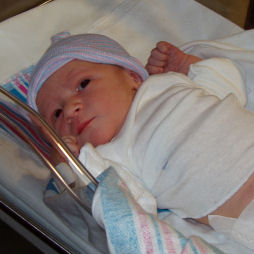
Simviation Forums
Flight Simulator and other chat

Albert Einsteins main contribution to the Atomic Bomb were not his physics but his letter to president
Eisenhower warning him that germany could build an a-bomb. That letter started the manhattan project.




http://www.whitehouse.gov/history/presidents/ht33.htmlDuring his few weeks as Vice President, Harry S Truman scarcely saw President Roosevelt, and received no briefing on the development of the atomic bomb or the unfolding difficulties with Soviet Russia. Suddenly these and a host of other wartime problems became Truman's to solve when, on April 12, 1945, he became President. He told reporters, "I felt like the moon, the stars, and all the planets had fallen on me."





There are three good reasons in the US defence.
1) They never could have imagined that a nuclear bomb was so dangerous. They knew little on radiation. There are pictures of US soldiers experimeting with the test ones fully exposed. This shows how they didn't appreciate what the aftermath of the bombs capabilities were.
2) The Japs did not surrender under Little Boy. They were that determined that it took Fat man to ensure surrender. This shows that when they understood the results they did not give in. Therefore the US were fair to use them.
3) WWII was not soldiers v soldiers. It was all about bombing civilians too (who were just as much part of the war really) and that was the way war was fought. The US did not break the rules and just because the atom bomb obliterated in one big sweep does not mean that it is unjustifed and that a million small incidiary bombs would have been better!

 The incendiaries just burn the living cr:Dp out of a city (or whatever it's dropped on, just cities please!), they don't go poisoning everything. Fire's a little good for plant growth, so trees might like the new-look city (but if anything grows there anymore, LOL!!!
The incendiaries just burn the living cr:Dp out of a city (or whatever it's dropped on, just cities please!), they don't go poisoning everything. Fire's a little good for plant growth, so trees might like the new-look city (but if anything grows there anymore, LOL!!! 

 ).
).new-look city





The good thing about Japan surrendering so quickly after the second atomic bomb explosion is that more weren't used after the invasion of the home islands.
all of this could lead someone to say "now we're even steven"
Its a messy thing, and it would be shallow to say that one could forgive and forget without a hint of retribution when one says it.
Its a bizarre kind of moralistic violence.

We can condemn things as acts of vengeance
I don't care much for 1st person "shooter" games (and don't comprehend those who lose the distinction between fantasy/reality) but try Combat Flight Simulator -- with the hope that "as real as it gets" is "as real as it will ever be" -- and keep your wars to yourself.

I do not see the use of the atomic bomb in WW2 as involving any sense of vengance.
It was a military decision designed to shorten (end) the war. I doubt that President Wilson leaped with joy about the opportunity to kill a million Japanese.
Would we have used it in Europe if it had been available? I have no doubt that we would have dropped one on Berlin and I would have no qualms defending President Wilson's decision to do so.
I would, however, have problems with General Ripper's (Dr. Strangelove) advice to bomb Moscow.
(Yeah, um, Truman.)
 ). Terrible
). Terrible 




4)Doesn't give the US the right to bomb the guts out of people who never did anything bad to them!!!!!(except for possibly some Jap soldiers, they can rot in marmelade for the soldier standards they represent! Ha ha!
)



Secondly, I think that it must've taken much moral strength to drop that bomb, and I hope the crew have found peace.
A.
GROUP CAPTAIN GEOFFREY LEONARD CHESHIRE VC, DFC, DSO 2bar
Leonard Cheshire was born in Chester, England, on 7th September 1917. He was educated at Stowe School and Merton College, Oxford.
After the outbreak of the Second World War he joined the Royal Air Force. He was posted to 102 Squadron and by August 1942 had been promoted to squadron commander of of 76 Squadron. In March 1943 at the age if twenty-five he became the youngest Group Captain in the RAF.
In November 1943 he was given command of 617 Squadron and over the next few months developed new low-level marking techniques that dramatically increased bombing accuracy.
In 1944 Cheshire was awarded the Victoria Cross after completing a hundred bombing missions on heavily defended targets in Nazi Germany. Cheshire was chosen as the official British observer of the atom bomb dropped on Nagasaki.
He was discharged on medical grounds in January 1946, He founded the Cheshire Foundation homes for the incurably sick. Lord Cheshire died on the 31st July 1992 of Motor Neurone disease.
http://www.dambusters.org.uk/cheshire.htmAfter the war Cheshire dedicated his life to maintaining world peace and was a member of CND. Cheshire also joined with his wife, Sue Ryder, to establish the Sue Ryder Foundation for the sick and disabled. Leonard Cheshire, who was created Baron Cheshire in 1991, died on 31st July, 1992


#2 - "Flattening" a city and then landing paratroops.
Bombing a city into rubble doesn't clear it - it just makes a lot more places for the defenders to hide. Between the bombing and landing paratroops, you move in the soldiers. Also, unless you quickly follow up effectively, paratroops are going to be dealt with piecemeal. There may not be many left.

Users browsing this forum: No registered users and 186 guests